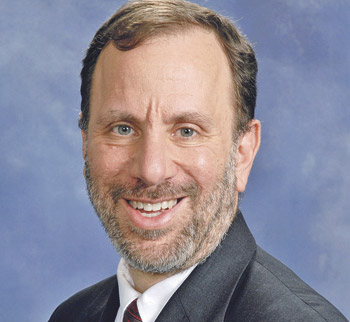TORONTO — After a year without a rabbi, Shaar Shalom Synagogue has hired a new spiritual leader, opening the door to egalitarianism after four decades as a traditional Conservative congregation.
This summer, Rabbi Steven Schwarzman will leave his pulpit at Congregation Beth Israel in Worcester, Mass., to lead the 400-family synagogue in Thornhill, Ont. The 53-year-old was ordained by the Jewish Theological Seminary in 2008, after a prior career as a technical writer and trainer for an Israeli software company.
Janice Shachter, president of Shaar Shalom, told The CJN that the congregation changed its constitution this past February, following a vote that passed by 86 per cent, to allow for the possibility of concurrent egalitarian and traditional Shabbat services, and also to guarantee the continuation of traditional services.
Any changes will be based on member demand, and will follow a process led by the new rabbi, Shachter said. “There’s room for everyone. Conservative Judaism is a pluralistic Judaism.”
Shachter is optimistic about the future of Shaar Shalom, despite challenges it has faced in recent years. In 2009, for demographic reasons, the shul’s Hebrew school closed.
More recently, in October 2012, the executive and board of governors opted not to renew the contract of longtime spiritual leader Rabbi Martin Berman, who had led the congregation since 1994. Three months later, Rabbi Berman sued for wrongful dismissal. The case was settled out of court in March 2013, and he remained the shul’s spiritual leader until last July, working full-time until May.
As well, a number of members left last year amid uncertainty about the shul’s future. Six years ago, there were 600 member units, 50 per cent more than today, and in 2012, there were 550.
Shachter noted that there are now some new members with young children, a positive development when many congregations are struggling with aging memberships. With an average age of 61, Shaar Shalom skews lower age-wise than some of its Conservative counterparts in the GTA, she added. She’s hopeful that some members who have left the shul will rejoin.
Those who stayed, she noted, have “a real feeling of passion” for Shaar Shalom. While Cantor Ben Silverberg continued to carry out pastoral duties following Rabbi Berman’s departure, members also stepped up to lead services and organize study groups on a volunteer basis, Shachter said.
The interim time served as a bonding experience that brought people together, she added. “We need a rabbi. But considering we didn’t have one, we really did make the best of it, and managed to thrive and prosper.”
Rabbi Schwarzman, who is beginning a two-year contract, shares Shachter’s take. “The amazing thing to me,” he said, “is not that the shul has gone through a bit of a rough spot. That’s not so uncommon. The amazing thing about Shaar Shalom is the energy they’ve displayed… There’s a vibrancy that you feel in the air. People are really excited about the shul… That kind of energy is something you can really build with.”
Rabbi Schwarzman and his wife Bettina, a Hebrew school teacher, will move to Toronto with the youngest of their four children. The three oldest will be in Israel – one for a post-university year, the other two as olim following in their parents’ footsteps.
The rabbi, a native of Washington, D.C., met his Stockholm-born wife, the daughter of a Holocaust survivor, as a graduate student at the Hebrew University of Jerusalem. They lived in Israel for almost a decade before relocating to the United States.
In his spare time, Rabbi Schwarzman is collecting stories for a book he’s writing about favourite Jewish prayers, a subject he stumbled onto by raising the topic while waiting for a minyan to begin.
